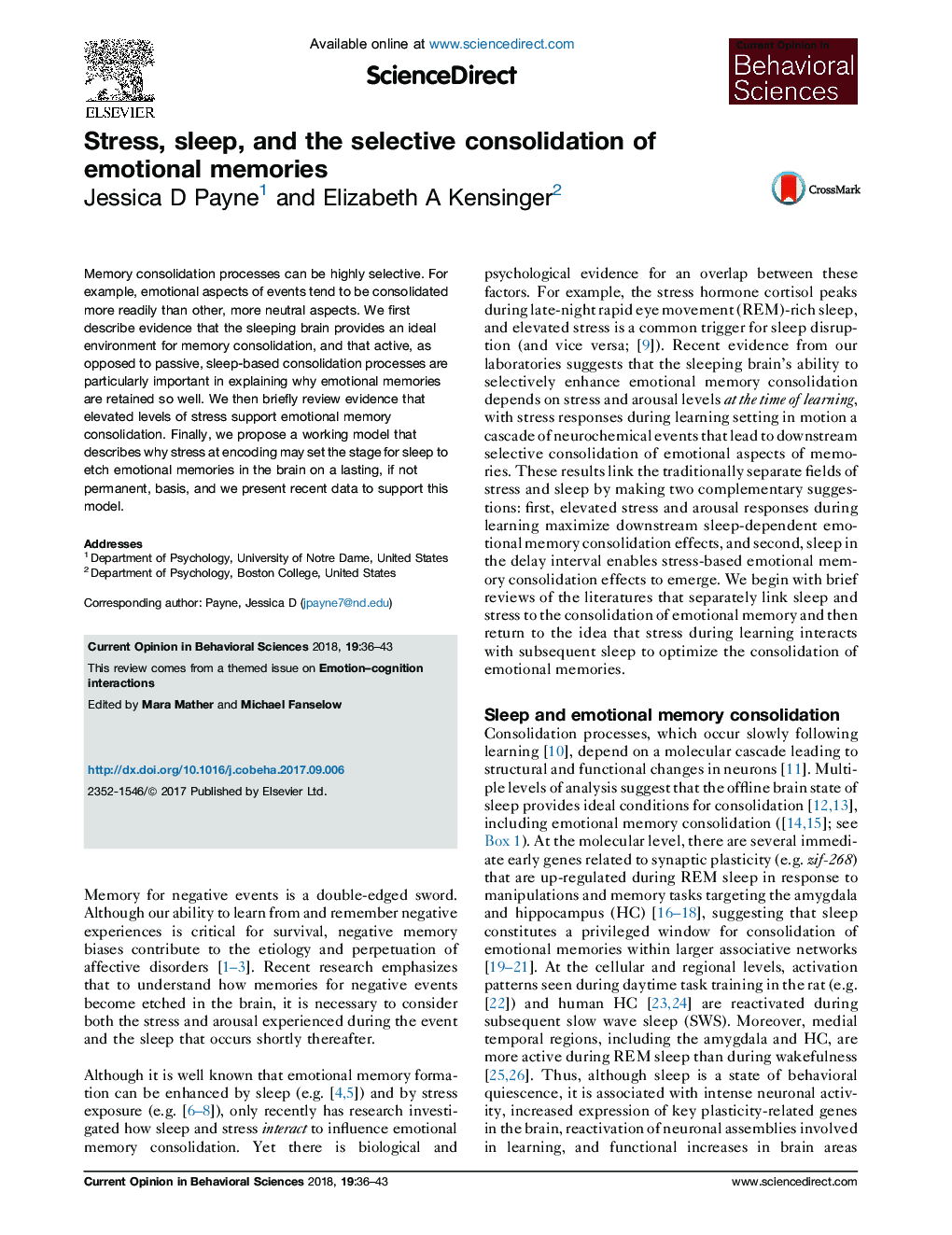| Article ID | Journal | Published Year | Pages | File Type |
|---|---|---|---|---|
| 5735707 | Current Opinion in Behavioral Sciences | 2018 | 8 Pages |
â¢Sleep and stress each enhance the selective consolidation of emotional memories.â¢Stress/arousal may help set 'tags' for aspects that are important to remember.â¢Sleep, esp. soon after event, may operate on 'tags' to enable systems-wide changes.â¢Stress/arousal at learning and post-learning sleep together optimize emotional memory.â¢Together they link synaptic to systems consolidation, so emotional memories persist.
Memory consolidation processes can be highly selective. For example, emotional aspects of events tend to be consolidated more readily than other, more neutral aspects. We first describe evidence that the sleeping brain provides an ideal environment for memory consolidation, and that active, as opposed to passive, sleep-based consolidation processes are particularly important in explaining why emotional memories are retained so well. We then briefly review evidence that elevated levels of stress support emotional memory consolidation. Finally, we propose a working model that describes why stress at encoding may set the stage for sleep to etch emotional memories in the brain on a lasting, if not permanent, basis, and we present recent data to support this model.
